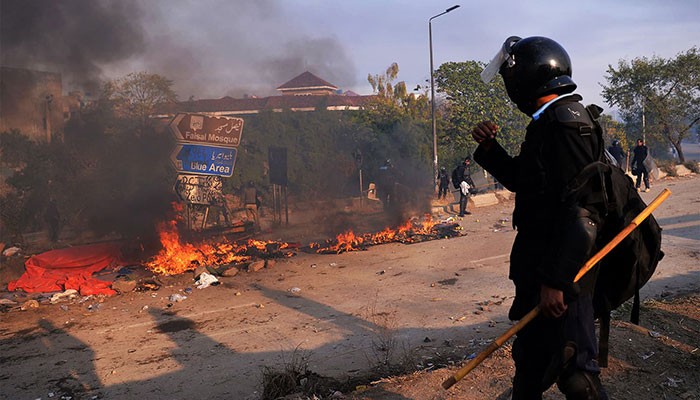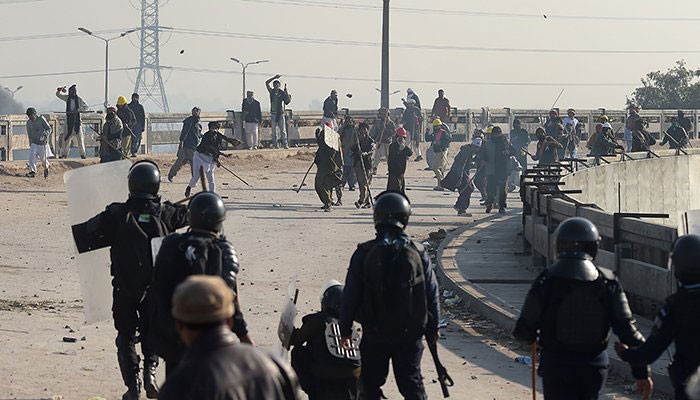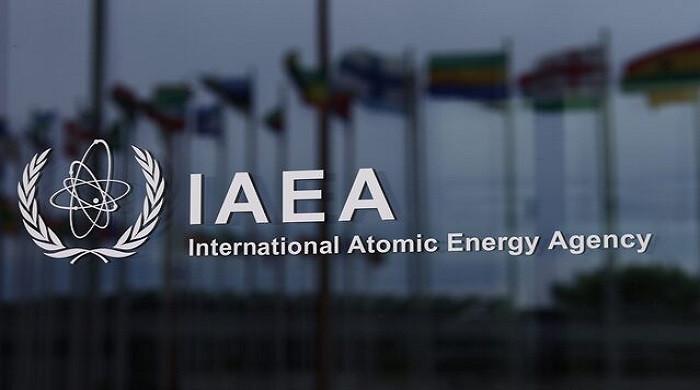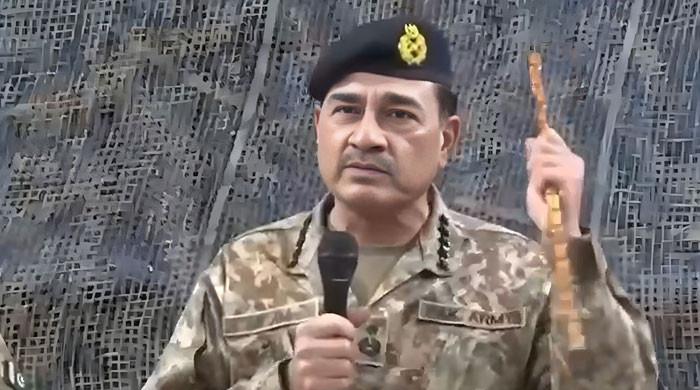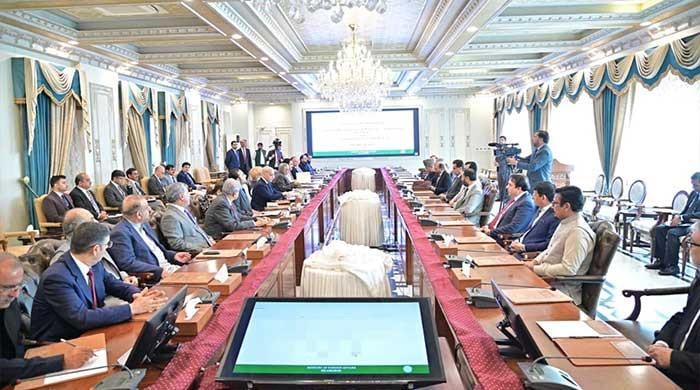State surrendered to sit-in protesters, observes Justice Shaukat Aziz Siddiqui
In its written order on November 27 in the case, the court had observed that it has serious reservations on the terms and mannerism of the agreement reached between the federal government and the...
December 04, 2017
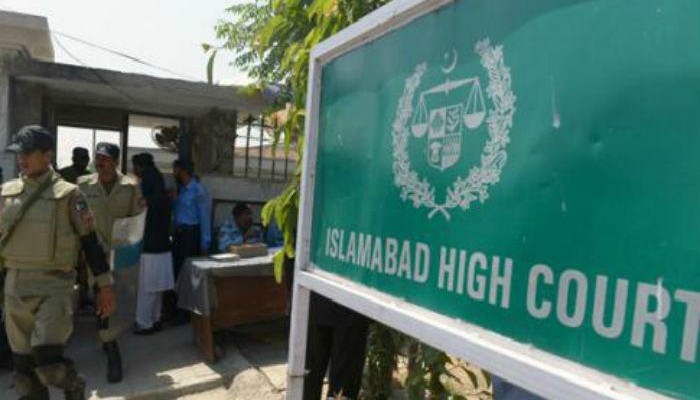
ISLAMABAD: Justice Shaukat Aziz Siddiqui of the Islamabad High Court (IHC) remarked on Monday that the state of Pakistan surrendered to the sit-in protesters at Faizabad.
Workers of a religious party had been protesting against the government at Faizabad Interchange of the capital for around three weeks, bringing the capital to a standstill for over 20 days.
Hearing the case, petitioned by ordinary citizens and the religious group, Justice Siddiqui observed that the state kneeled before the protesters and not a single clause of the agreement between the government and the religious group is according to the Constitution.
“We have to see the legal standing of this agreement,” Justice Siddiqui noted.
Justice Siddiqui stated that in respect of the Supreme Court which is hearing a suo motu case on the subject related to the sit-in, the IHC will not give its decision on the case.
He also remarked that the copy of the agreement should be presented in the joint session of the Parliament.
Justice Siddiqui stated further that he would not let this case be dismissed if the losses incurred by the police during the sit-in are not compensated. He also said the police should be given the salary of four months in advance.
He questioned that if, as an ordinary citizen, he is injured by the protesters, how can the state sign an agreement on his behalf.
"Wasn't the policeman killed in the protest part of the state," Justice Siddiqui observed.
Justice Siddiqui asked how Khadim Hussain Rizvi, the religious group’s leader, can pardon anyone’s murder.
Attorney General Ashtar Ausaf Ali asked the court for some time to submit a detailed report on the case. He said that the ministries are estimating the damage incurred by the state due to vandalism by the protesters.
Adjourning the hearing until January 12, the court directed the attorney general to submit a report on the legality of the agreement.
Earlier, in its written order on November 27, the court had observed that it had serious reservations on the terms and mannerism of the agreement reached between the federal government and the protesters at Faizabad to end the sit-in.
The director-general of the Intelligence Bureau (IB) was directed to submit a report on how the protesters of the sit-in procured guns, tear gas shells and masks to protect themselves from the police.
The IB chief was further instructed to submit a report showing the reasons for the failure of the operation.
The court also directed the chief commissioner to submit a report on the conduct of the operation and reasons for its failure.
Interior Minister Ahsan Iqbal had been summoned in the hearing on November 27 on a contempt notice over the government's failure to implement court orders directing the shifting of Faizabad protest to the Parade Ground.
During proceedings, the chief commissioner informed the judge that the sit-in will be cleared as the two sides have reached an agreement. The judge then directed the counsel to read out the judgment and questioned the guarantee of the sit-in ending.
The minister, who arrived later, also informed the court that the protest will formally end today after the announcement is made in a formal press conference.
The judge remarked that the minister has insulted the city administration [due to the botched operation].
You (Iqbal) have done nothing than surrender before sit-in protesters, he added.
He also asked where [Operation] Raddul Fasaad has gone – did no one see any fasaad [chaos] here?
Justice Siddiqui also spoke regarding the presence of tear-gas shells and other weapons with the protesters and questioned how these weapons were obtained by the protesters.
The judge further stated that the protesters had verbally abused judges and asked why their apology is not in the agreement.
Referring to the agreement’s clause of dismissing cases against the protesters, the judge wondered how persons against whom cases are filed under the Anti-Terrorism Act can be pardoned.
Enquiring about Haq’s report, the judge commented that this was not any Khadim or group's issue but an issue of the Ummah.
The court also wondered how the army could become an arbitrator between the government and those who flouted the law when they have to obey the order of the elected government.
There was no role of any intelligence agency behind the sit-in protest, a representative of an agency informed the court.
He stated that there were only two ways to control the situation and they opted for the peaceful way to resolve the protest after the court’s order.
Army has the mandate to work under your (Iqbal's) instructions, the judge remarked.
Army should remain under its constitutional role and not play the role of an arbitrator, added the justice.
“They (army) came as witness, not arbitrator,” clarified Iqbal.
He also said that the Rangers were deployed alongside the Islamabad administration.
“The army is our pride. Our fathers, sons and brothers are in the army. In case of danger, we will stand side by side with the army,” further stated Siddiqui.
The attorney general was also summoned by the court for the next hearing.
The judge then adjourned the hearing until December 4 (today) and directed the submission of the written agreement in court.
The court in an earlier hearing had also directed the interior secretary to submit Senator Raja Zafarul Haq's report before the court.
The ruling party has formed an inquiry committee under Haq that will identify those responsible for the 'clerical error' that led to the change in the oath of the Finality of Prophethood for electoral candidates.


